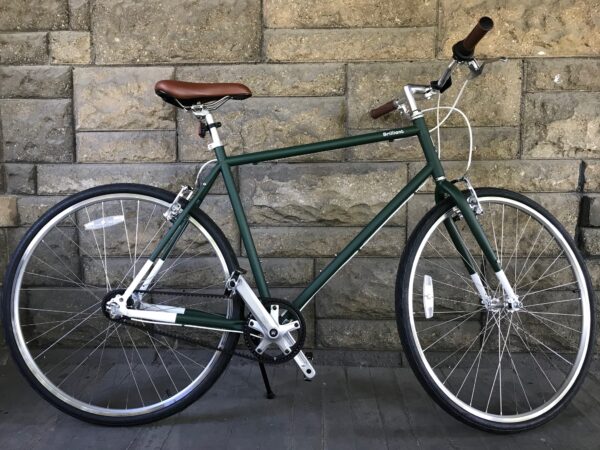Bikes for Essential Workers is gearing up for its first program in Detroit. The idea behind it is simple, grant essential workers that are without reliable transportation the ability to travel safely to and from their place of work. This is not a new idea to the U.S., but for Detroit, a city of promising greenway potential and vast city space, the Bikes for Essential Workers program is a fresh take to the question of transportation in this city.
Detroit is special in different ways to many of us. For Tim Springer, otherwise known as the Greenway Guy and a part-time resident of Detroit, this city could become the world’s greenway capital. Due to Michigan’s controversially enjoyed flat landscape and Detroit’s underutilized roadways, there is plenty of opportunity beyond what greenways are already present throughout the city. Beyond this, according to Springer, there is a great human need. Greenways expanse, such as bike lanes and bike paths, can create a connection throughout the city and give those without reliable automotive transportation the ability to get around.
The possession of bicycles must come in tandem with these greenways for their utilization to provide the utmost amount of service to the community. Bikes for Essential Workers, though begun as a program to provide reliable transportation to essential workers during this pandemic, hopes to prove to the city and its residents how important this form of transportation is in Detroit.
The Henry Ford Health System partnered with Bikes for Essential Workers in order to pinpoint individuals for the program. “They are a natural program partner,” says Springer, “because they are all about health, and everyone that works there is an essential worker.” Chosen individuals will be given a survey, prior and post this year’s program, to provide Bikes for Essential Workers with the proper information and tools to continue the program in the coming years.

ANGELO TAYLOR DEMONSTRATES BIKE HELMET FITTING IN A HOW-TO FOR B4E DETROIT BIKE RECIPIENTS
Bikes for Essential Workers has also teamed up with MoGo, who offered ideas to help forward the program. Online material has been created for individuals that are receiving bicycles. “It’s hard to really set someone up for success without giving them the right tools,” says Springer. In addition to the bike and the links to the educational videos, participants will receive a helmet, a headlight, and a tail light, a reflective vest, a lock with a cable, a bike pump, and basic tools to change a flat tire.
To individuals like Springer, who chose bicycling as their form of transportation outside of public transport, the possibility of lessening vehicular traffic is exciting. “It feels like it’s important for everyone on the planet to be a conscious global citizen,” Springer says. “What that means over time changes, but what I think that means [right now] is to focus on climate change and social equity. I believe bicycles for transportation in urban areas is a way to address climate change and social equity at the same time by providing improved mobility, better health, and cleaner air, as well as decreasing carbon footprints.”
He continues by saying that transportation in the United States makes up a large portion of our country’s carbon footprint. “Everyone who moves about needs to look in the mirror and understand their own rule in decreasing that,” he says. Opportunities like Bikes for Essential Workers and more expansive greenways in Detroit can help bicycling provide faster, safer, and more pleasant modes of reaching our destinations. Springer speaks to those chosen to receive bicycles during this program, “They still may want a car and use it sometimes, but now they have additional options.”
Cycling in America has taken off since the beginning of the covid-19 pandemic. There is a hope that when the pressure of the pandemic releases, cycling will still be seen as a preferred mode of transportation. Projects like the Joe Lewis Greenway, which is scheduled to break ground this fall, are greatly anticipated in coordination with the bicycle boom. Bikes for Essential Workers plans to continue their program next year with a greater impact and continued fundraising.






















